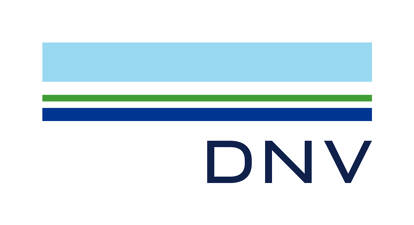At DNV we are experts in the GRI Standards and have extensive experience in implementing the standards described below throughout our strategy work.

What are the GRI Standards?
The Global Reporting Initiative is an established and well-respected sustainability reporting framework covering ESG topics.
GRI reporting gives organisations a structure for reporting their sustainability impacts and standardizes topic reporting where disclosures take place, enabling readers to easily compare sustainability disclosures.
At DNV we are experts in the GRI Standards and have extensive experience in implementing the standards described below throughout our strategy work.
What’s new?
As of 1st January 2023, all reporting organisations are required to use the Global Reporting Initiative’s (GRI) revised 2021 standards.
Universal Standards
GRI 1: Foundation
GRI 1 introduces the GRI Standards and how they should be used. It lists the requirements of reporting in accordance with the GRI Standards.
What’s new?
- Themes and concepts in the Standard such as impact, material topics, due diligence, and stakeholders, have been revisited and redefined from the perspective of impact materiality – the impact of organisations on the economy, environment, and people.
- The reporting principles namely clarity, accuracy, balance, and comparability have been adjusted to encourage improved presentation of reported information.
GRI 2: General Disclosures
All reporting organisations are required to disclose in line with the ‘GRI 2 General Disclosures’. These disclosures relate to organisational structure and reporting practices.
What’s new?
- To provide greater clarity and consistency, the topics in GRI 2 have been revised for reporting practices, activities and workers, governance, strategy, policies, practices, and stakeholder engagement.
- Disclosures are now required for responsible business conduct (human rights and due diligence) and demonstration of how these commitments are embedded into the organisation, as well as compliance with laws and regulations.
GRI 3: Material Topics
GRI 3 contains disclosures regarding material topics, how they have been identified, and how they are managed.
What’s new?
- GRI 3 now consolidates all information regarding materiality into a single standard.
- Topics are considered material when they represent the organisation’s most significant impacts on the economy, environment, and people.
- Step-by-step guidance has now been developed for determining material topics and is fully aligned with international business expectations, human rights, and due diligence.
- Revised disclosures for reporting the process to determine material topics, the list of material topics, and the management of each material topic.
Sector Standards
- 40 different industry-specific standards will be developed.
- Companies are required to use the relevant Sector Standard when reporting with the GRI Standards. If a Sector Standard is not yet available for your industry, Topic Standards material to your organisation should be used.
Topic Standards
Companies disclose information for each Topic Standard that is material to the business. The disclosures capture how the organisation is managing the associated impacts with the topic.
What’s new?
- The Topic Standards have been adapted to ensure consistency with the Universal Standards and will be updated regularly.
- There are now 31 Standards.
For more information, please visit: GRI – Standards (globalreporting.org)
How can DNV help?
At DNV, our experienced team of strategy experts are well equipped to support you through GRI alignment and the materiality process. Our approach to strategy development originates from our work with businesses, investors, and wider stakeholders to address the challenges of building trust and creating value in a volatile, uncertain, and complex world. Get in touch with our experts to see how we can support you and your business, at sustainability.uk@dnv.com.
By, Isobel Marshall, ESG Policy and Market Development Consultant, Laure Davis, Sustainability and ESG Consultant and Freya Pratt, Sustainability and ESG Consultant
N.B. The information contained in this entry is provided by the above supplier, and does not necessarily reflect the views and opinions of the publisher


